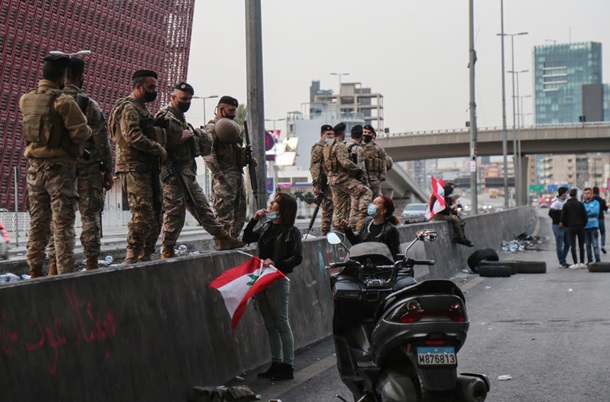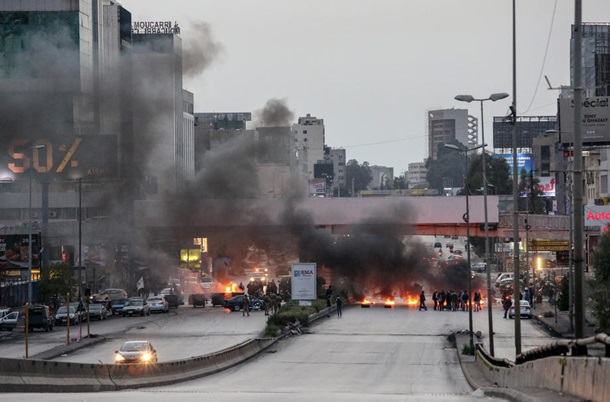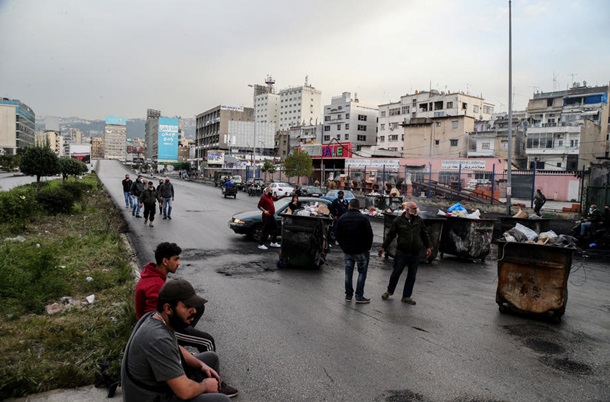As a result of the ongoing financial and economic crisis, the Lebanese pound has lost 85 percent of its value.
In Lebanon, a year and a half after massive anti-government actions, protests erupted again against the backdrop of the collapse of the national currency and hyperinflation, reaching hundreds of percent per annum.
The government resigned back in August last year after explosion in the port of Beirut, but a new cabinet has not yet been formed. Correspondent.net tells the details.
The soldiers are starving, as are the people
Life in Lebanon, which was once called the “Switzerland of the Middle East”, has become disastrous: in early March, there was a sharp depreciation of the national currency.
The US dollar exchange rate fluctuates between 9675 and 9725 Lebanese pounds. The Lebanese pound has depreciated 20 percent since the beginning of 2021, and 85 percent since the end of 2019.
This led to a sharp decline in the minimum monthly wage. If in October 2019, when the first protests began, it was $ 450, now it has dropped to $ 67.
Food prices have jumped 400 percent in the country, according to official statistics in Lebanon, and now 45 percent of the country’s population is below the poverty line.
The current record depreciation of the national currency has provoked another massive demonstrations across the country – from Tripoli in the north to Sura in the south, people have been protesting since last week. Dissatisfied Lebanese citizens took to the streets, as most do not even have money for bread.
EPA
–
The crisis also led to an increase in crime. The number of homicides in the country over the past year increased by 91 percent, and robberies – by 57 percent, according to Information International, citing data from the Lebanese police.
At the same time, relations between Lebanese President Michel Aoun and the army commander, Joseph, escalated. Discontent among the military is growing amid the depreciation of their salaries, and they refuse to disperse the protesters who block the roads.
“The soldiers are starving, as are the people. Do they need an army or not? Do you want the army to be on its feet or not? They don’t care. The officers are also suffering and starving. I appeal to the officials: where are you going? What are you waiting for?” “What are you planning to do?” General Aoun said at a press conference on March 8, without specifying to whom exactly his attack was directed.
 –
–
EPA
–
Last year, the Lebanese army was forced to remove meat from the diet of the military.
According to Reuters, citing sources, the disagreement between the general and the presidents was caused by the latter’s demand to disperse the protesters who were building barricades on the roads.
Demonstrators are blocking downtown Beirut and major metropolitan highways with burning tires, as well as highways in the south, north and east of the country. The protesters are demanding that the authorities start real actions to overcome the economic crisis and improve the life of the population.
 –
–
EPA
–
At the same time, the president publicly says that the protests are “legal and fair.” He said he had instructed police forces to “ensure the safety of the demonstrators, as well as protection from pogroms to government agencies and private companies.”
Aoun also demanded that the Central Bank “explain to the public” what caused the collapse of the national currency.
Lebanon has been going through a deep economic and political crisis since autumn 2019. The reason was the explosion in the port of the capital of Beirut, which destroyed half of the city and the Lebanese economy.
During this time, two governments resigned: Saad Hariri amid protests and Hassan Diyab after the explosion in the port of Beirut.
By the end of September 2020, local authorities planned to announce the composition of a new cabinet of ministers headed by Mustafa Adib. Instead, Adib announced on September 26 that he resigned and refused to form a government, arguing that the political blocs did not refuse to politicize the formation process.
 –
–
EPA
–
At the end of October, Saad Hariri once again received the post of prime minister, who declared his readiness to promptly assemble the cabinet of ministers in order to take advantage of French initiative and get support. In fact, Hariri has so far failed to find a compromise composition that satisfies all parties.
In addition to hunger, power outages for three or more hours a day have become the norm in Beirut. In some areas of the Lebanese capital, there is no light until 12 noon. The authorities cannot provide a clear explanation of why this is happening.
As the speaker of the Lebanese parliament, Nibih Berri, said at a meeting with interim energy minister Ruimun Gajar, if the government is not formed by April at the latest, there will be no electricity, but the country itself.
News from Correspondent.net in Telegram. Subscribe to our channel https://t.me/korrespondentnet
– .

:strip_icc():format(jpeg)/kly-media-production/medias/3360224/original/016078500_1611709375-WhatsApp_Image_2021-01-26_at_17.16.07.jpeg)
